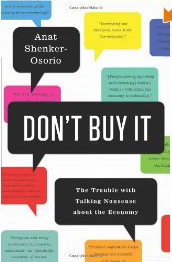How to really make America great again: Get rid of ‘the dumbest idea in the world’
One of the best questions you can ask people in organizations that are struggling is:
If you could get rid of one thing, what would it be?
It’s a great question (and also one that should be asked in confidentiality) because:
- It’s hard to think about changing everything.
- It’s easier to think about one thing to eliminate.
- People often have a really good idea about what that one thing is in an organization. Often it’s the elephant in the room that people can’t talk about publicly for fear of retribution. Sometimes, it’s a person.
One thing clearly stands head and shoulders above the rest when you talk to many people in corporate America. It’s an idea that completely removes responsibility from many corporations in our society. It’s an idea that threatens not only our constitutional democracy, but also every value Christians hold dear and every value we hold dear from modernity and post-modernity.
It’s an idea so bad that Jack Welch, former CEO of General Electric, called it “the dumbest idea in the world.”
The idea, called shareholder value theory, is that the sole purpose of publicly-held corporations is to return profit to shareholders.
Customers be damned. Society be damned. Families be damned. Results be damned. America be damned.












